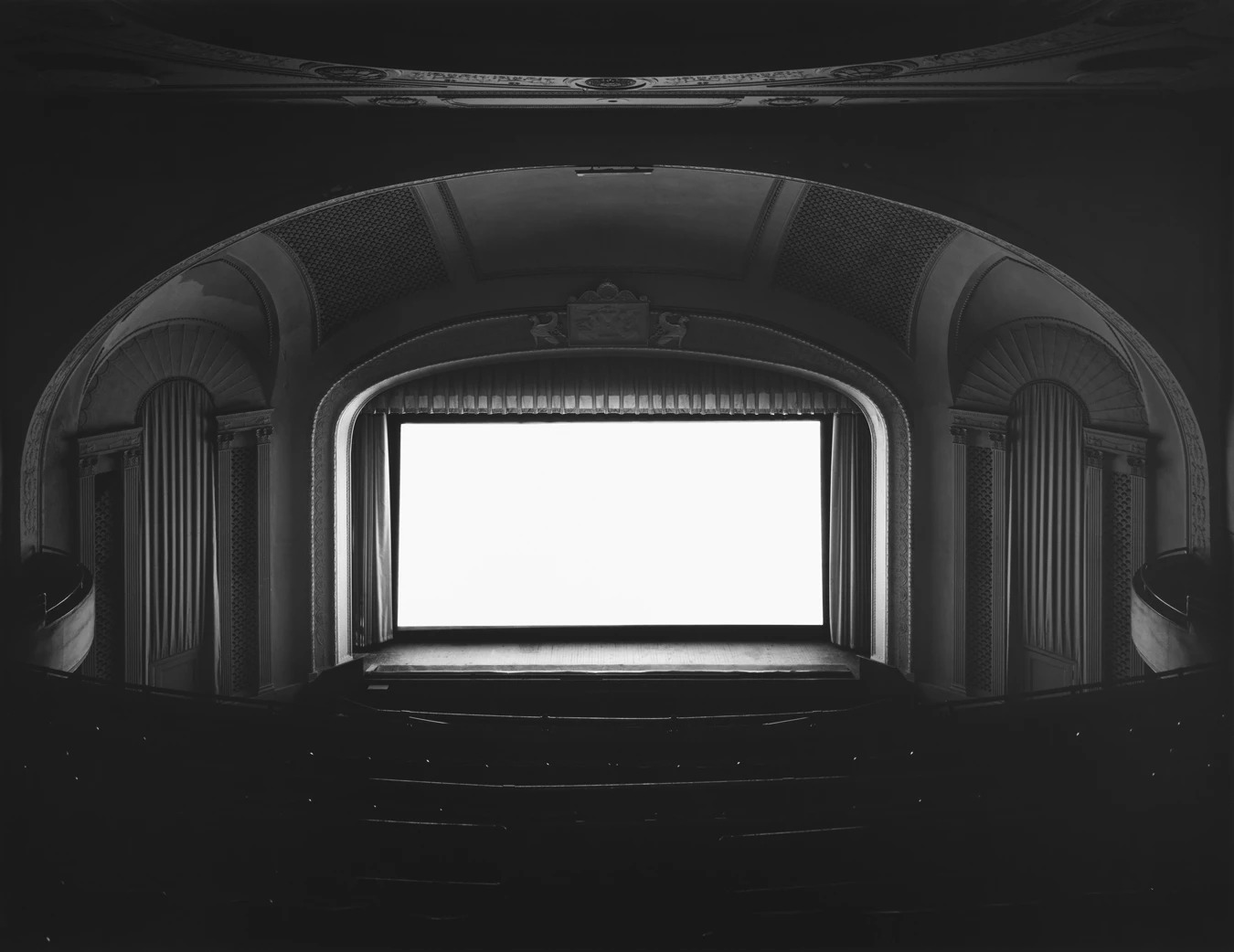Movement is always the purest indication of how truthful one is being.

Hiroshi Sugimoto - U.A. Playhouse, New York, 1978
The fall had been a hard stretch.
He and Mark were brothers of sorts. A decade and a half ago, the two of them had been cast in a TV show on a fledgling gay channel, about the lives of four single Black gay men in L.A. It was a big to-do—audiences loved it, and he basically played the Black version of all the white queens he hated. He had been working on some horrible avant-garde play in San Francisco when his agent called him with an offer for the part of Jonathan—muscular, 33, a nonurban Black hippie wallflower type. Easy enough. He had been having problems landing acting gigs that didn’t read as “urban”—every role called for a strong masculine Black man with confidence and all the answers, and he couldn’t fake that even for a paycheck. The role of Jonathan felt tailor-made—after all, he’d grown up in Encino.
The show was so uniquely Black (or as “Black” as white West Hollywood tastes would allow) that no one noticed the characters for what they were: really shitty muscle queens from L.A.
At night, when he was alone in the drying shed, the landscape outside had the dark glow of moonlight. The moon put a soul filter on everything. The hum of the gas-powered generator reminded him of the underwater sound of the highway cars he could hear from his bedroom in the city. He felt like a nature god, alone in the great expanse.
All he’d ever wanted, he realized, was the stage lights and the applause; the acting itself was just the driver holding the carrot in front of the donkey. He figured that if society had allowed a butcher, a baker, or a candlestick maker to merit stage lights and applause, he would have easily been any one of those, too.
In his mind, spewing words was the easy part; the work of blocking out motions was the challenge that killed or illuminated an expression, the business of what to do with the hands or feet while trying to convince an audience that you are someone else. Movement is always the purest indication of how truthful one is being.
He had never been a good actor, just a committed one—committed like Robert Downey Jr. or Mel Gibson, to being a caricature of himself. In fact, acting had given him license to be himself. The context, mannerisms, or historical backdrop could change from play to play, but he stayed wrapped up in his typecast: a fragile yet strong (or faux brave) and always spiraling man.
He began to notice it—small at first, but then it grew, the thing he’d warned others against but slowly failed to reconcile in himself: He noticed himself being watched. It was the beginning of the end; the death was sudden. One day, out of fucking nowhere and without warning, the audience all had faces, eyes, and expectations.
His apartment was as he’d left it: sparsely furnished and clean. His life as a farmer had made him want to be a nomad, and every time he came back from the mountain he got rid of more and more stuff. If only it were possible to be a part-time resident in everything.
For the first time in forever, he felt that strange and foreign emotion—a stillness and a sense of peace. He began to cry.
Brontez Purnell - Early Retirement, from 100 Boyfriends (Farrar Straus and Giroux, 2021)
Commentaires
Enregistrer un commentaire
Si le post auquel vous réagissez a été publié il y a plus de 15 jours, votre commentaire n'apparaîtra pas immédiatement (les commentaires aux anciens posts sont modérés pour éviter les spams).